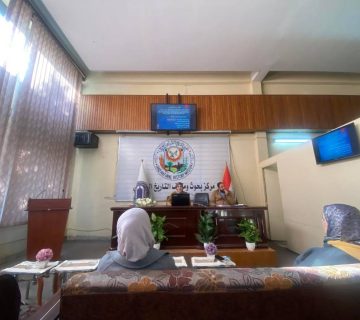Our center recently hosted a workshop titled “Canned Faood and its Impact on Public Health.” This event, organized by the Continuing Education Unit and supported by Assistant Professor Dr. Hana Hani Al-Saffar, aimed to raise awareness about the potential health risks associated with canned foods.
The workshop, led by teaching assistants Suhad Hamza Muhammad Ali and Maab Riad Sajat, explored the process of canning and its use of preservatives, coloring agents, and flavorings to extend shelf life. While canning offers significant benefits in terms of food preservation, the discussion focused on potential downsides:
Digestive issues: High sodium content in canned foods may contribute to the formation of gallstones and chronic constipation.
Gastric concerns: Certain preservatives and artificial ingredients may trigger acute or chronic inflammation in the stomach, potentially leading to ulcers.
Cancer risk: The workshop explored concerns about links between some coloring agents and preservatives and potential cancer development.
Obesity and related health risks: The low fiber content and high-calorie count of some canned foods could contribute to weight gain and associated health issues like diabetes and cardiovascular disease.
It’s important to note that the workshop aimed to raise awareness and encourage informed choices, not demonize canned foods entirely. While potential risks exist, individual dietary choices and overall health conditions play a significant role.









